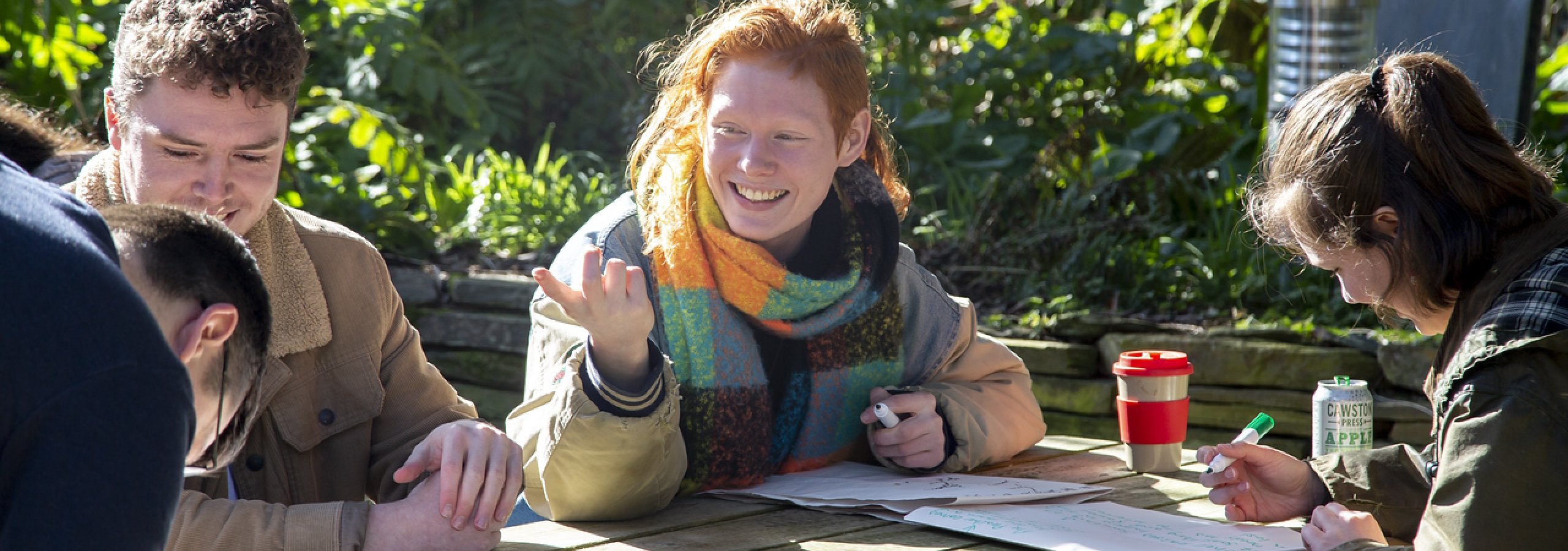Be at the forefront of breaking news and produce creative writing or ad campaigns that rise above the noise.
Taught by leading writers and creative directors, study a master's degree and develop your skillset for impactful storytelling and advertising through text, video and image. From fiction and scriptwriting, to branding and editorial, our postgraduate courses will give you the opportunity to master your writing and communication skills in your chosen genre.
You'll study the work of renowned writers, directors, journalists and leading brands, while building your own portfolio and growing your online presence, ready to be a trailblazer within industry.

Talk to us about study options
Request informationOur writing and communication courses
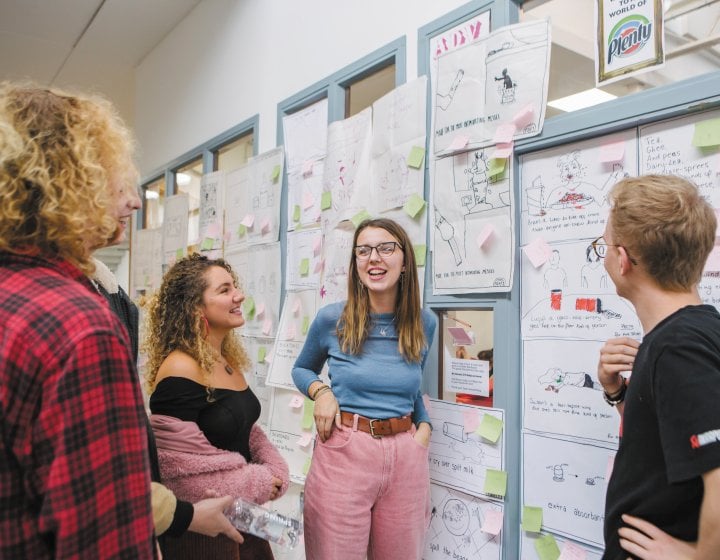
Creative Advertising MA
Master the contemporary craft of advertising. On this innovative master's course, you’ll ente...
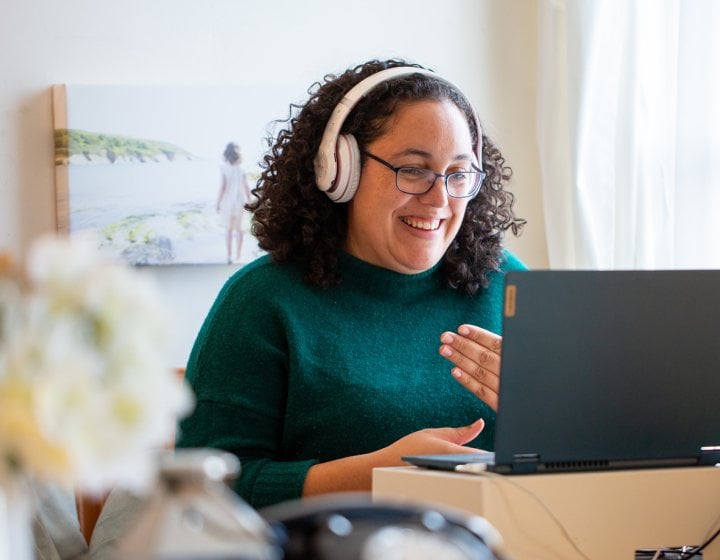
Comedy Writing MA (Online)
Get the skills, tools and industry insights to push your projects to the top of the commissioning ed...

Professional Writing MA
Forge a successful career in professional writing. You’ll stretch your writing skills across disci...

Writing for Script & Screen MA (Online)
Gain the writing techniques, industry know-how, professional skills and experience of collaborative ...
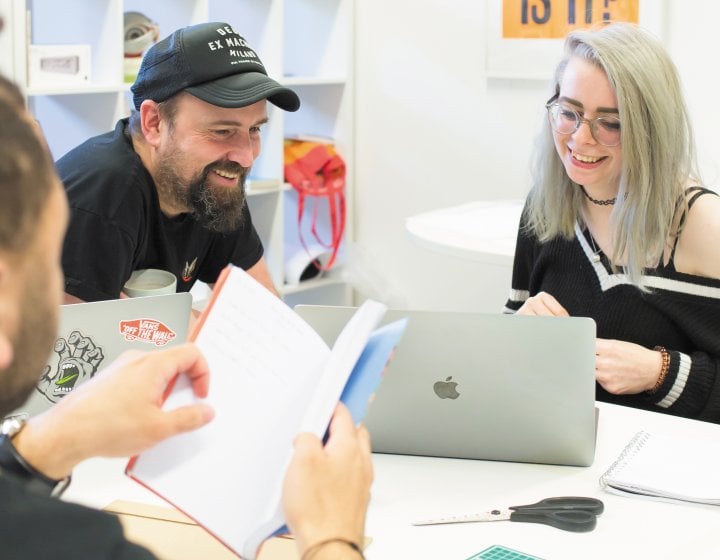
Communication Design MA
Design thinking is an essential tool for understanding the world around us, and at a time of unprece...
Why study a writing or communications master's degree?
Our postgraduate courses give you the opportunity to refine your journalistic or creative writing voice under the guidance of experienced professionals. You'll examine the communications landscape and engage with new techniques in multimedia content while developing your own creative briefs.
At Falmouth, you'll join a community of fellow writers and benefit from our industry connections, including our Writers in Residence programme, which has featured Matt Haig, Wyl Menmuir, Emily Barr, Philip Marsden and Xan Brooks.
Built to help students establish successful careers, you'll learn how to research, propose and pitch as well as develop a professional network that you can use in the real world. Our graduates have gone on to forge careers as published authors, editors, playwrights as well as strategic planners, content creators and PR managers.

What our students and graduates do

Creative Advertising alumni awarded Most Promising Creative Team 2025
19 August 2025
When Caitlin Chakraborty and Indi Morland became friends while studying Falmouth’s Creative Advert...

Falmouth Writing alumna shares insight into self-run magazine
16 July 2025
Halle Merrick is currently finishing the first year of her PhD after completing both a Creative Writ...

Professional Writing alumni’s debut novel shortlisted for the Bloody Scotland Prize
02 July 2025
Describing his time at Falmouth as “exceptional” and “deeply insightful”, Professional Writi...

Professional Writing MA student publishes short story in The Simple Things magazine
19 June 2025
For Harriet Derioz, this is the fifth time one of her short stories has made it into the pages of th...
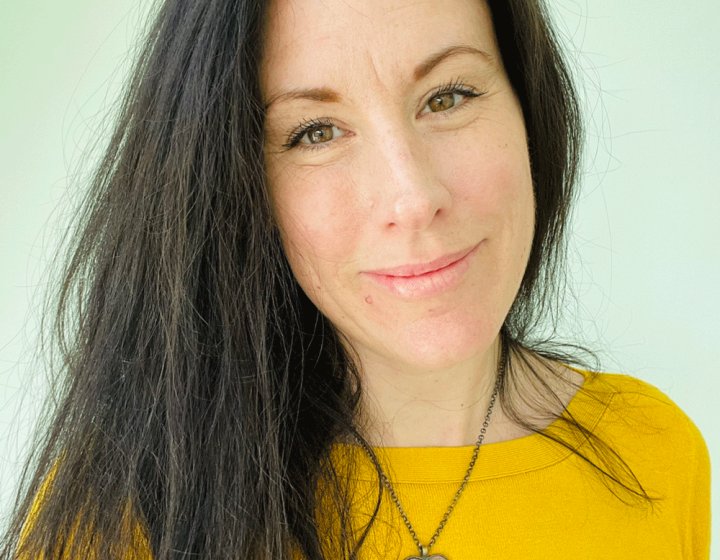
Professional Writing MA alumna set to release debut novel with HarperCollins imprint
15 May 2025
After writing freelance for Devon Life, BBC Countryfile Magazine, and as a host blogger for The Huff...

Falmouth graduates collaborate to secure 5 book deal with children's publisher
12 May 2025
Since graduating, Sarah Oliver has gone on to become a Sunday Times bestselling author, publishing o...
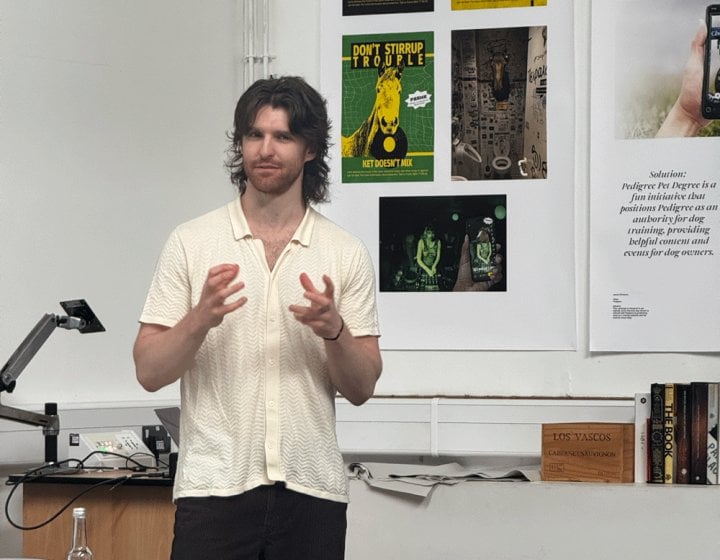
“Your job is to bring the sparkle”: Creative Advertising alumnus gives students advice
06 May 2025
Since graduating in 2020, Jonah Campbell has worked on everything from television adverts for Burt...

Cornish charm and cosy mysteries: Judy Leigh's path to one million books
25 October 2024
Since completing her MA in Professional Writing at Falmouth University in 2015, Judy Leigh has achie...

Ant Jackson: from Creative Advertising MA to national supermarket tagline
01 August 2024
After feeling unfulfilled as an in-house marketing manager in 2014, Ant Jackson followed her creativ...
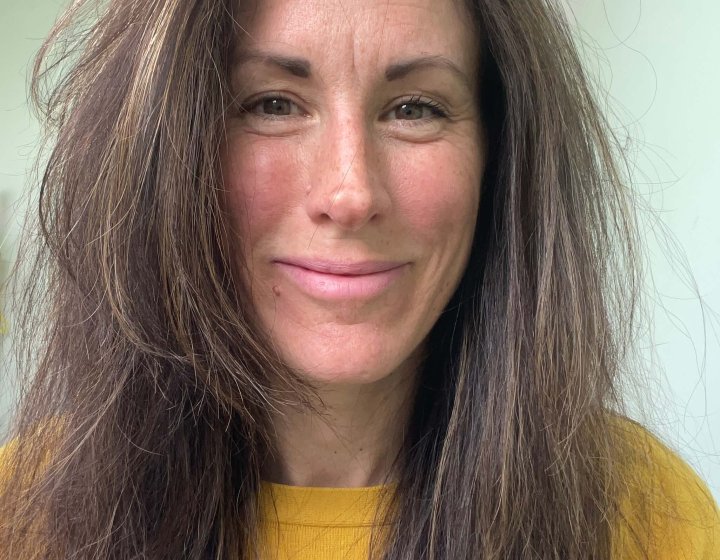
Professional Writing MA alumni signs book deal with major publisher
20 June 2024
Professional Writing MA graduate Claire Frances has signed a two-book deal with HarperCollins UK’s...

Graduate Spotlight: author Ceda Parkinson
28 May 2024
Since completing her master's in Professional Writing at Falmouth in 2023, Ceda Parkinson’s writin...

What is Creative Advertising?
22 May 2023
With today’s ad space oversaturated and fiercely competitive, how do brands cut above the noise an...

MA Creative Advertising graduate wins big at American Advertising Awards 2023
19 April 2023
Jonah Campbell, who graduated from Falmouth University’s Creative Advertising MA in 2020, recently...

Graduate spotlight: Reigniting your creative fire
25 October 2022
BA Musical Theatre and MA Professional Writing graduate speaks about discovering, losing and finally...

Graduate strikes gold at Cannes Lions 2022
21 July 2022
MA Creative Advertising graduate Isabel Snellen has achieved an early career highlight after her age...
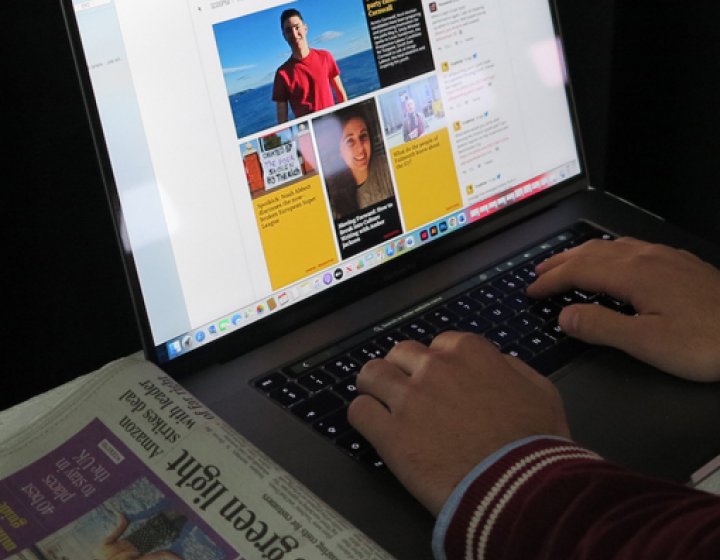
How to live blog: 5 tips to get started
21 April 2022
A live blog is a great way to cover major news stories or events as they unfold - but how do you cre...

Journalism tutor invited to deliver talk at International Journalism Festival
30 March 2022
Award-winning journalist and features writer Abigail Edge, an online tutor on our MA Journalism (Onl...

5 ways journalists fact-check stories in the age of fake news
22 March 2022
Award-winning journalist, Dr Kit Chapman discusses five tactics to fact-check stories in the age of ...

Meet the accidental author juggling multiple books deals
16 March 2022
After honing his authorial prowess on Falmouth’s English & Creative Writing degree, Adrian Mar...

Graduate spotlight: KitKat, CoppaFeel & a Cannes Gold Lion
15 February 2022
Since graduating from Falmouth's Creative Advertising MA, Jo Taylor has worked for the likes of KitK...
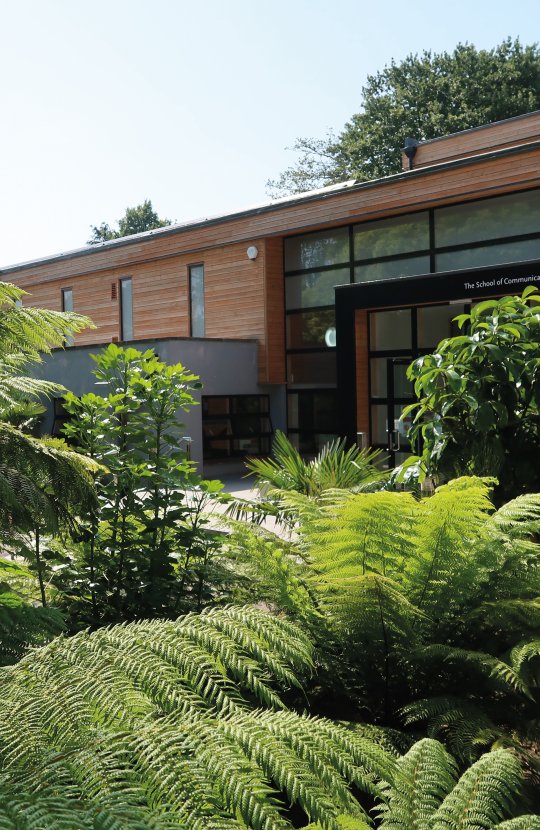
Virtual tour
Discover where you’ll spend your time as a student with our 360° tour, showcasing our facilities, accommodation, town and scenery.
